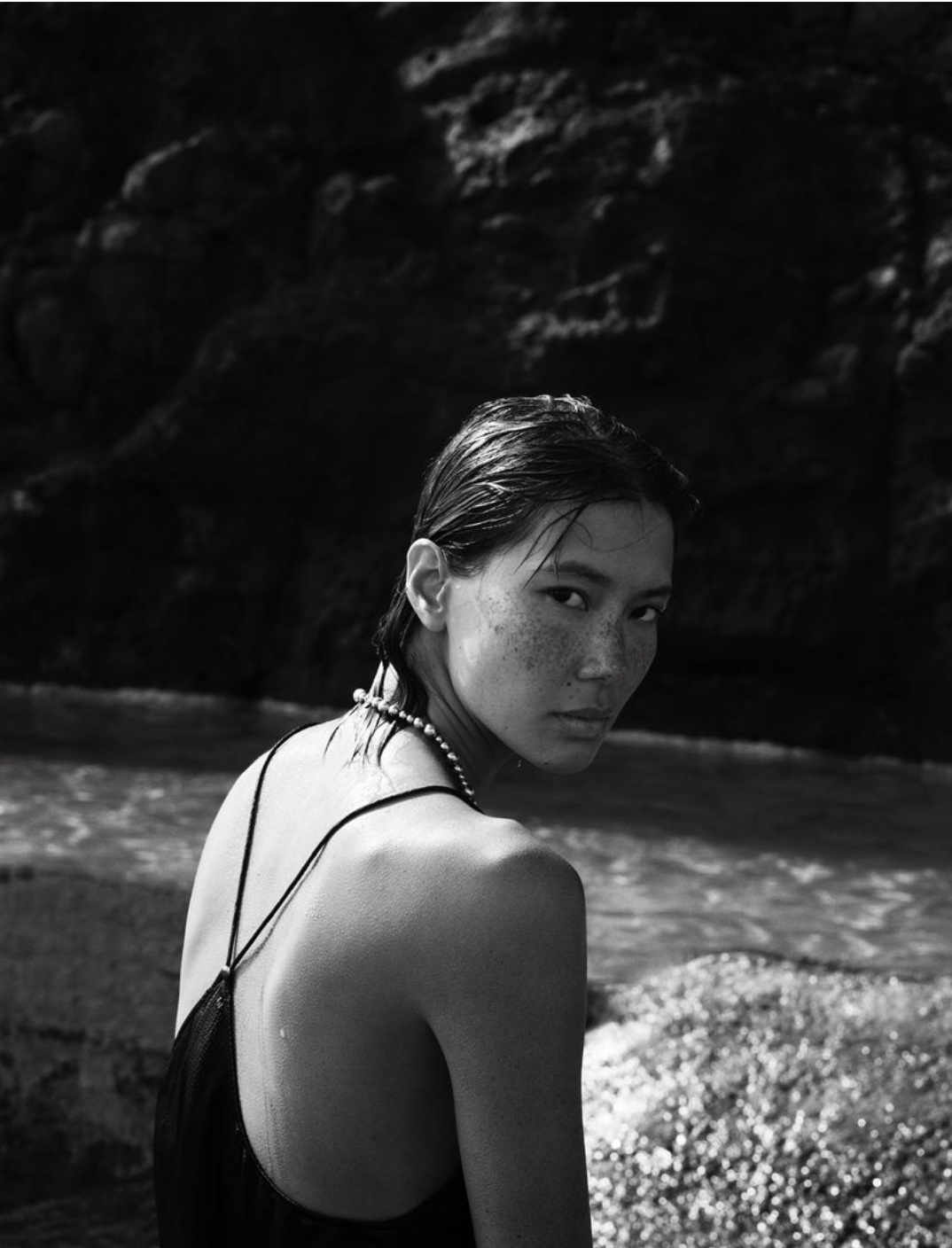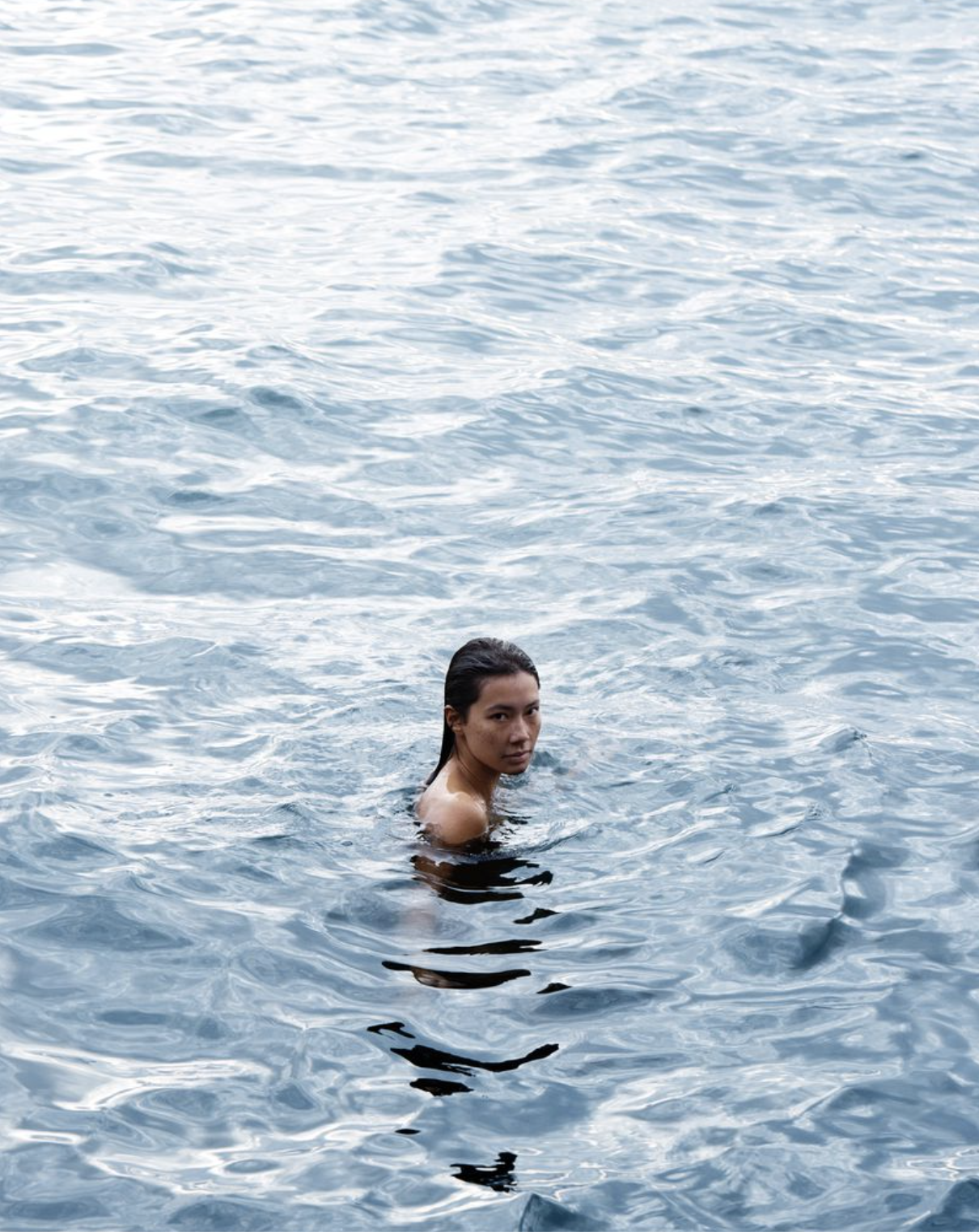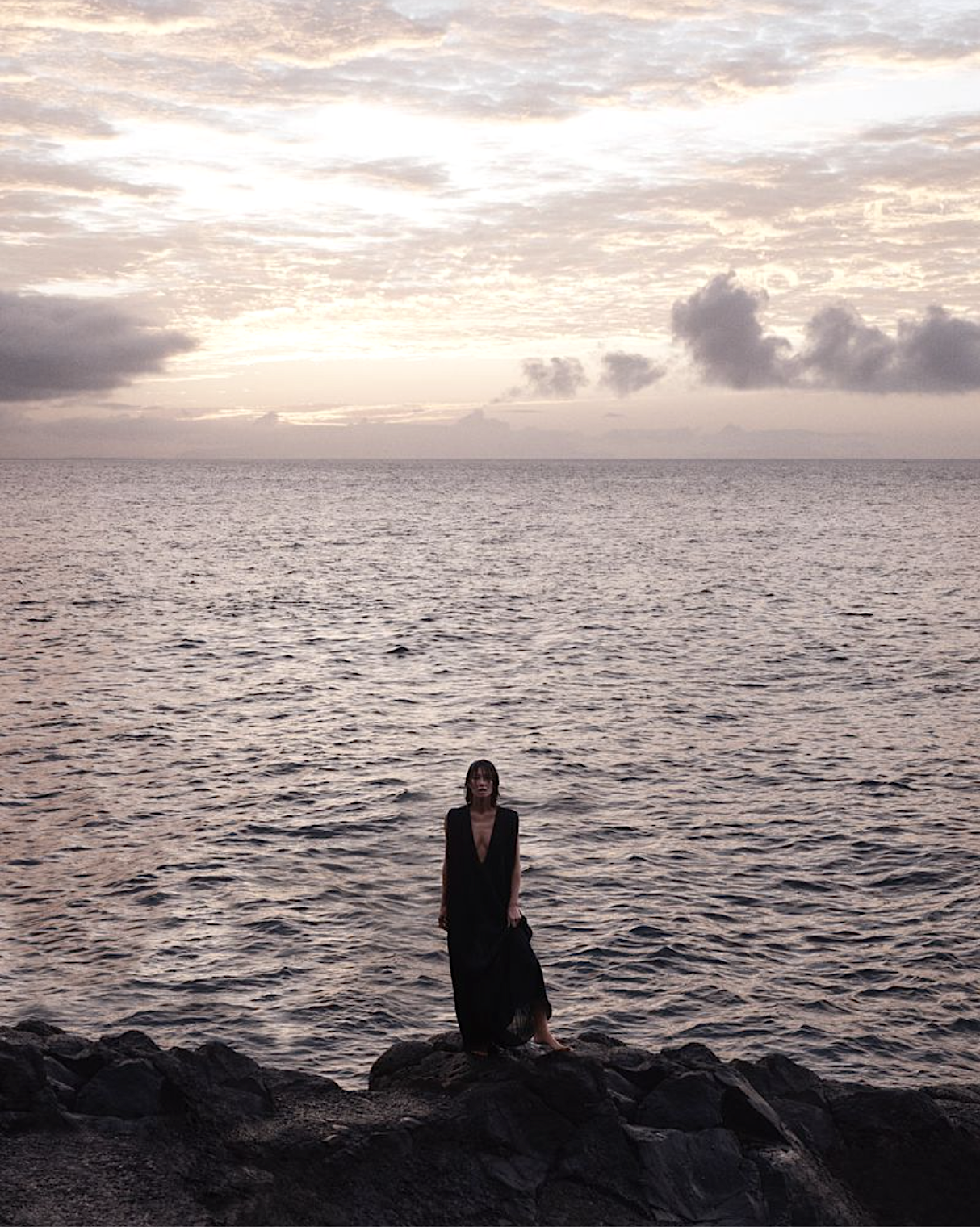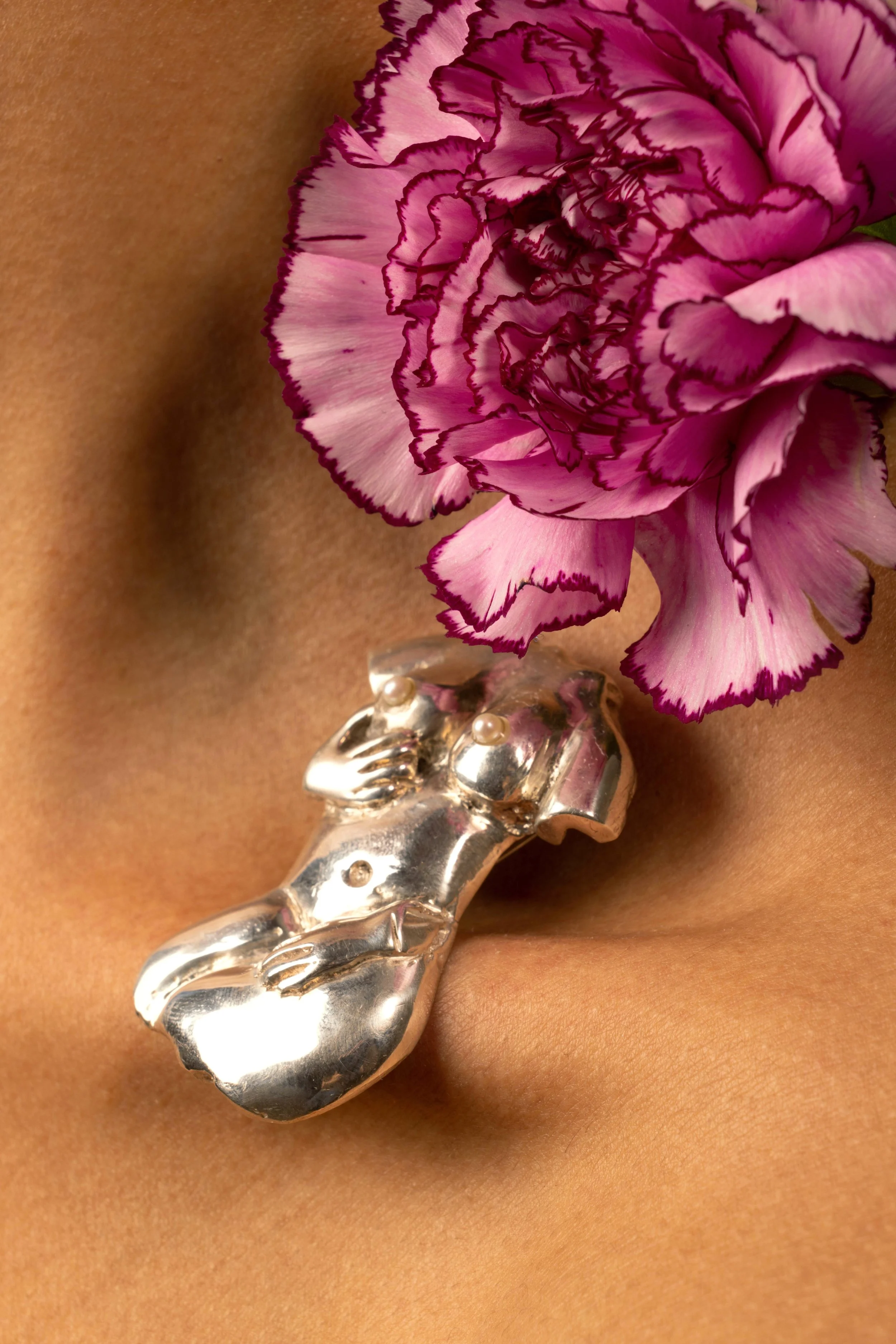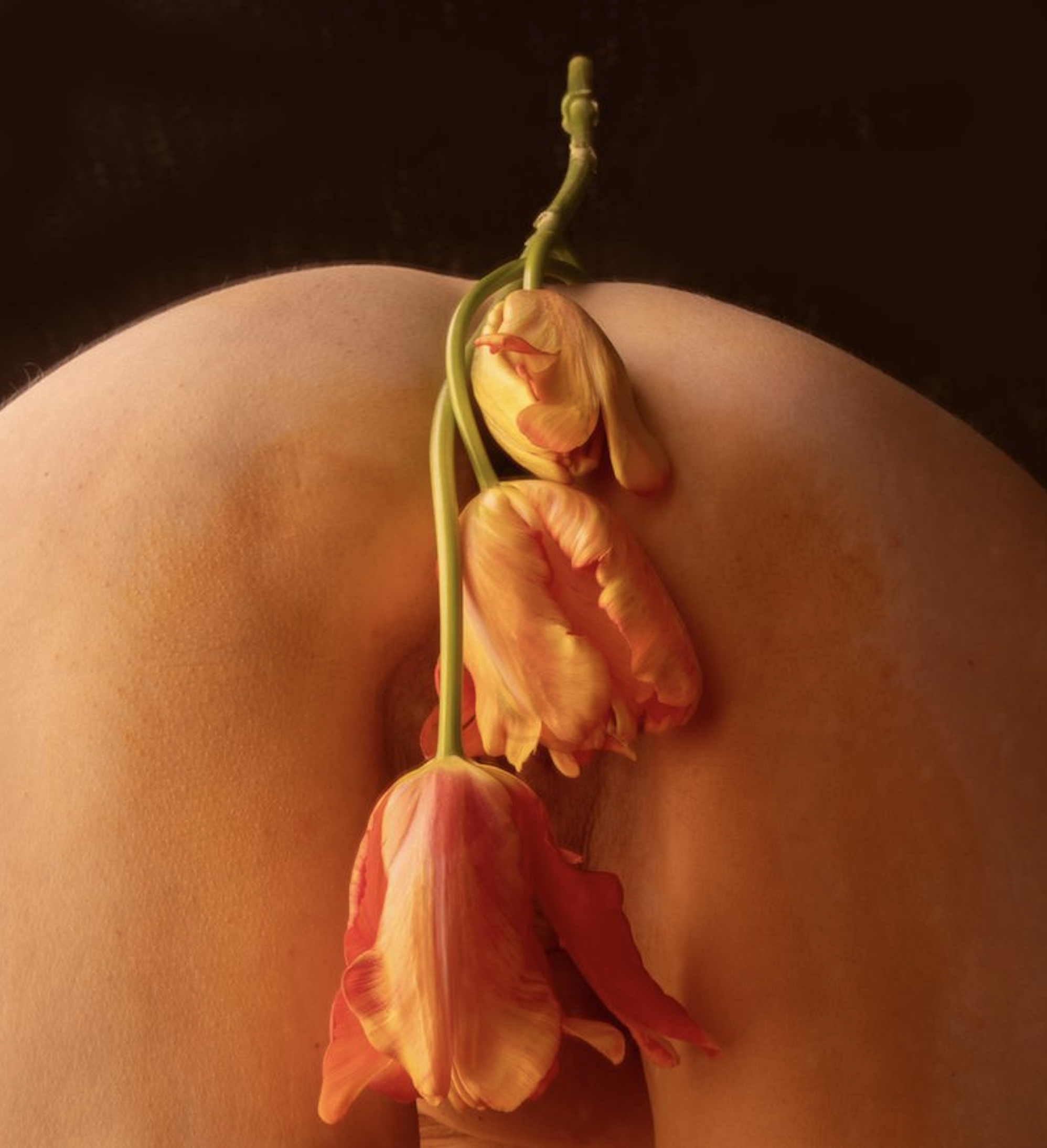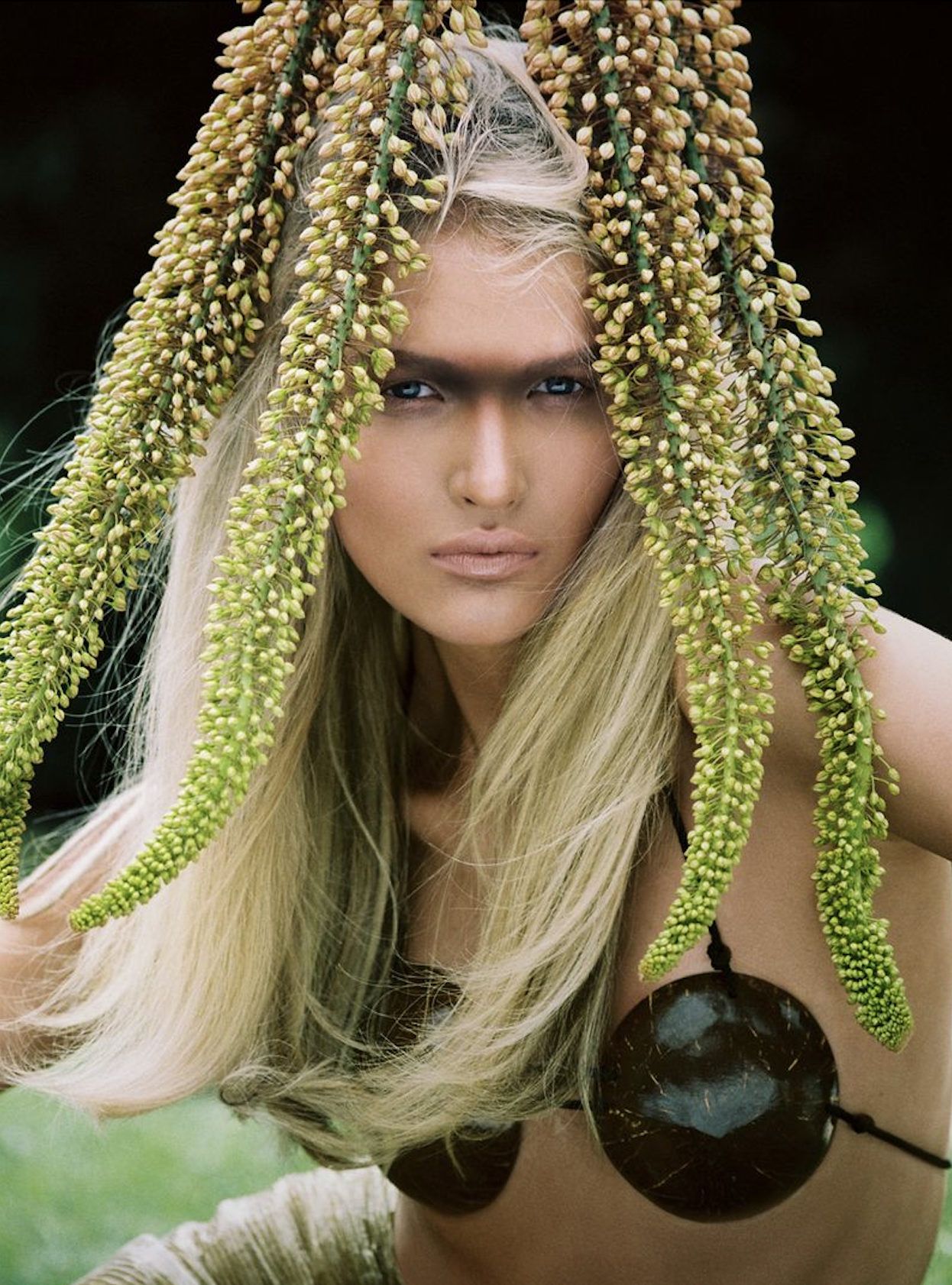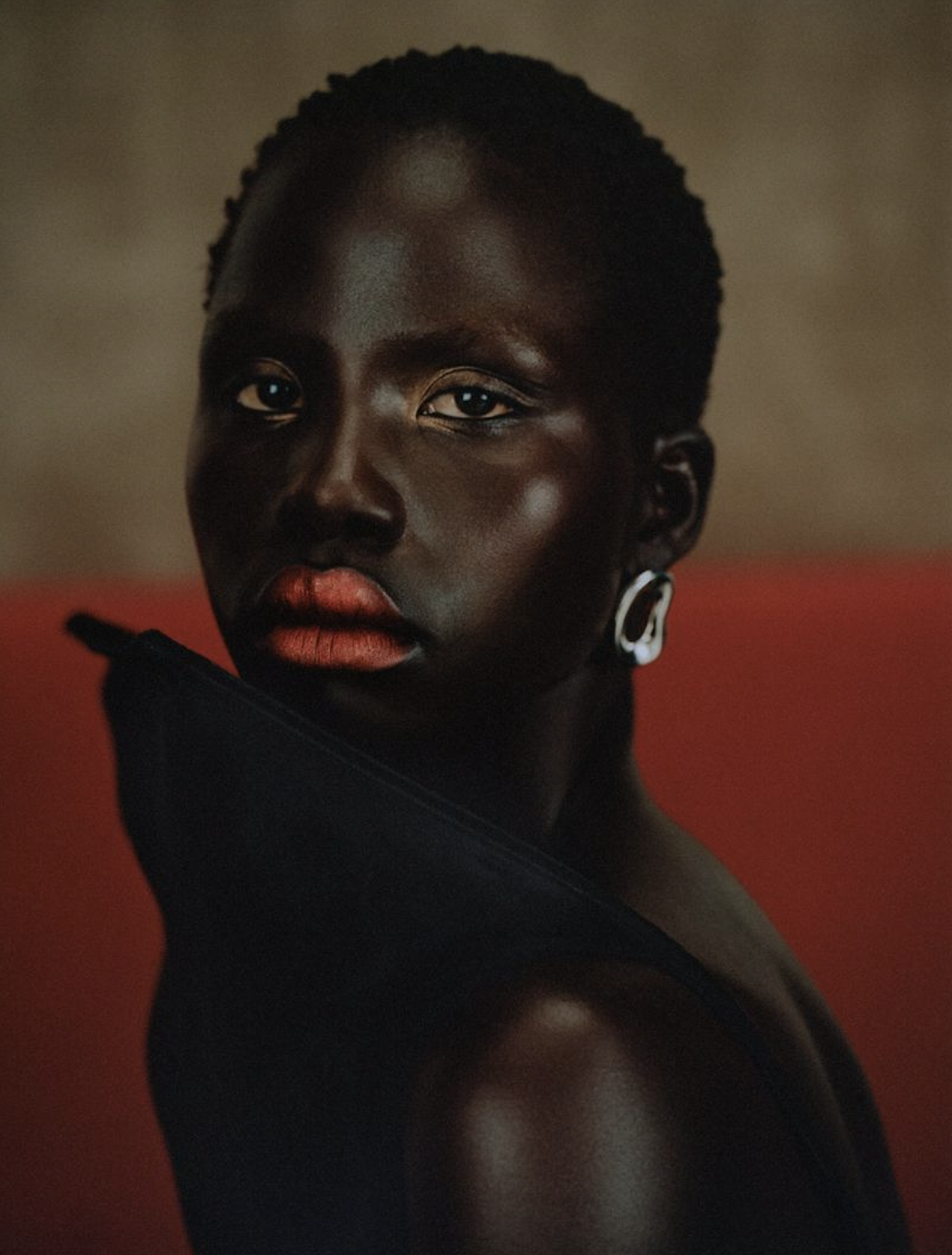Ancient Water Stories Inspired by Chloe Magno in Vogue Thailand by Amie Milne
/Rising model Chloe Magno covers Vogue Thailand Beauty [IG] April 2024 issue, devoted to emerging, holistic trends in wellness and beauty.
Magno’s fashion story ‘Wellness Wisdom’ is styled by Holly Gorst with images by Amie Milne [IG] and the editorial eye of Vogue Thailand EIC Kullawit Laosuksri./ Hair by Mark Francome Painter; makeup by Victoria Bond
The fashion story was shot at Reid’s Palace, a Belmond Hotel on the island of Madeira, Portugal, a short ferry ride from Spain’s Canary Islands.
Today, AOC’s interest in wellness and wisdom is focused on the heritage of Vogue Thailand — a country Anne has visited many times for both vacation and business — and its neighbors Cambodia and Vietnam.
In the case of Vietnam, Anne has never visited the nation so intertwined with her own history as an American. But on a United Airlines morning flight from Bangkok to Hong Kong, she found herself alone in first class.
The United pilot got permission to drop the jumbo jet down low — so low that it was easy to see the Vietnamese people walking along the roads, living their daily lives. Moving from one window to another, the flight became a deeply personal experience that she has never forgotten.
Distinct Yet Interconnected Kingdoms and Cultures
The heritages of Southeast Asia are marked by the emergence of distinct yet interconnected kingdoms and cultures in what are now Thailand, Vietnam, and Cambodia. This fascinating period illustrates a complex tapestry of indigenous development and external influences that shaped the early historical trajectory of these regions.
In Thailand, the Dvaravati culture laid early foundations around the 6th to 11th centuries, characterized by its Mon people's influence and their Theravada Buddhism.
Meanwhile, the Khmer Empire, centered in present-day Cambodia, emerged as a formidable power between the 9th and 15th centuries, renowned for its architectural marvels like Angkor Wat and its sophisticated hydraulic engineering.
Vietnam's narrative diverges with its early history dominated by various dynasties such as the Đông Sơn culture known for its advanced bronze casting and later Chinese rule which introduced Confucianism, significantly influencing Vietnamese society. This period saw Vietnam asserting its distinct identity through resistance against Chinese dominance leading to eventual independence.
These early civilizations were not isolated entities but interacted through trade, warfare, and cultural exchange. Such interactions highlight a regionally interconnected Southeast Asia long before European colonialism reshaped its borders and identities.
The Mekong Basin: Ancient Wisdom and Water Reverence
In the heart of Southeast Asia, the Mekong Basin unfurls as a testament to the ancient wisdom and reverence for water held by the peoples living in this region. Their differing histories and customs are united by their respect for the region’s waterways. This region considers its rivers and springs not merely as sources of sustenance but as sacred entities that cradle life and civilization.
In the verdant landscapes of ancient Southeast Asia, water was more than a life-sustaining resource; it was a profound symbol of purity, fertility, and transition. Rituals and rites intricately woven into the fabric of these societies underscored water's pivotal role. Ceremonies often took place by rivers or in constructed water bodies, signifying the belief in water as a conduit to the divine and ancestral worlds.
For instance, during specific lunar cycles or at the onset of rice planting season, communities engaged in elaborate water rituals. These ceremonies involved offerings to water spirits or ancestors, beseeching them for bountiful harvests or protection.
The practice of releasing small boats laden with candles and offerings down rivers was not only an act of spiritual cleansing but also a collective appeal for harmony with nature's rhythms. Anne has witnesses these rituals many times.
Water Deities in Thailand
Thai folklore is especially replete with tales that intertwine the essence of water with divine wisdom and guidance. Central to these narratives are water deities and legendary creatures that inhabit rivers, lakes, and oceans, embodying the vital connection between the physical and spiritual realms.
Among these revered entities is Phra Mae Khongkha (Mother of Waters), a goddess who is believed to preside over Thailand's waters, ensuring their abundance and fertility. Her presence underscores the reverence for water as a source of life and a pathway to enlightenment. Folk tales often depict her interacting with humans, teaching them respect for nature’s cycles and emphasizing harmony between earthly existence and spiritual truths.
Moreover, mythical serpents known as Nāga play a pivotal role in Thai folklore. These creatures symbolize protection and wisdom; they are thought to control rainfall and thus agriculture's success.
The Wisdom of Ancient Water Practices
The legacy of liquid life in the regions of modern-day Thailand, Cambodia, and Vietnam is a testament to the enduring wisdom of ancient water practices. Historically, these civilizations developed sophisticated methods for managing and utilizing water that were deeply intertwined with their cultural beliefs and everyday lives. From the intricate irrigation systems of the Angkor civilization to the water festivals that symbolize purification and renewal, these practices have been passed down through generations.
In contemporary times, despite technological advancements and changing landscapes, many communities continue to honor these traditions. The ancient technique of rainwater harvesting is now recognized for its sustainability, aligning with modern environmental conservation efforts. Similarly, traditional fishing methods that respect aquatic ecosystems reflect an ancient understanding that remains relevant in promoting biodiversity.
These enduring practices serve not only as a bridge connecting past to present but they also highlight a collective wisdom emphasizing harmony between humanity and nature. As we face global challenges related to water scarcity and climate change, revisiting these ancient strategies offers valuable insights into sustainable living, demonstrating how ancestral knowledge can guide modern societies towards more resilient futures.
In AOC’s opinion, helping humans reconnect with the wisdom of our ancient cultures is critical to solving the enormous challenges facing the world’s people.
At the center of this wisdom is our connection to ‘divine’ waters worldwide.







